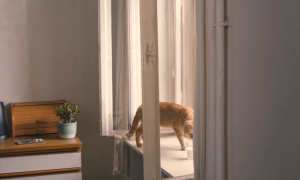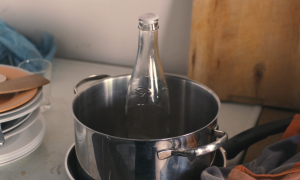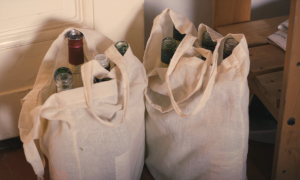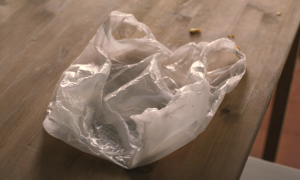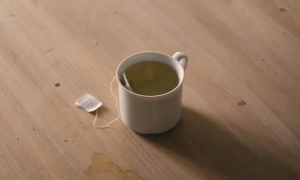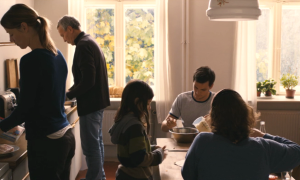
Review: One Night Only
The Strange Little Cat (Ramon Zürcher, Germany, 2013, 72 min)
MMoCA Spotlight Cinema, Wednesday, November 5, 7pm»
This short, dense, and almost claustrophobic portrait of a family gathering is a richly satisfying experience.
I can’t think of a more densely detailed short feature than The Strange Little Cat, the recent German film playing this week (one screening only) at MMoCA Spotlight Cinema. Perhaps the middle third of Godard’s Breathless in Patricia’s apartment does more with less space and action, but The Strange Little Cat provides wonderfully insightful observations of three generations of a family as they go about their mundane tasks to prepare for an extended family dinner. Most of the action takes place in a small apartment kitchen, leading to an alternation between incredibly dense compositions bustling with layers of activity and minimalist shots of individuals or specific details within the space. The film gives nearly equal status to the peripheral activities of the family cat, dog, and even a pesky moth, as details repeat and play off each other in a way that is richly satisfying despite the often emotionally aloof family members.
As part of my on-going commitment to avoid explicit plot summaries, I won’t outline who’s who in the film because figuring out who people are and their relationships is part of the pleasure of the film. Several family members speak in a shorthand of non-answers with which only people who know each other can pull off without becoming very irritating. There is a lot of talk in the film, however, which might distract some people from the subtle visual sophistication of the staging and compositions. Some of the talk seems to be irrelevant tangential stories (awkward movie theater encounter; peeling an orange on a walk; meeting a drunk woman at a party), but details from these stories come back and resonate in various ways with details or incidents in the kitchen.
One of my favorite sequences in the film uses a technique similar to the famous ending to Antonioni’s L’Eclisse: As a transition after (roughly) the first act of the film, Zürcher cuts to a series of details within the kitchen that now have some kind of association with a character or story. Or, in some cases, the details will resonate later. The technique is used a few times in the film to develop motifs and provide temporal transitions.
I also appreciated how children are allowed to be children in the film. A key character in the film is young Clara, who is just old enough to start writing (she writes a significant shopping list in the first scene), but not always quite old enough to understand what the adults are talking about. Much like the camera itself, the children in the film are left to simply observe the family and try to piece together what is going on based upon how they already understand the world. This provides another interesting layer to the action which, again, is deceptively simple. Sometimes we’re not exactly clear what is causing tension between some of the characters, so we’re not unlike young Clara observing with our best guesses as to what is going on under the surface.
As simple as the film is on the surface you will likely want to revisit it after the MMoCA Spotlight screening tomorrow night. The increasingly intriguing streaming service Fandor acquired the film for a day-and-date release when it played at Cannes, and it might be as good a reason as any to give Fandor a trial period. Meanwhile, you can also add the film to your GoWatchIt queue to get updates about streaming and DVD releases.
